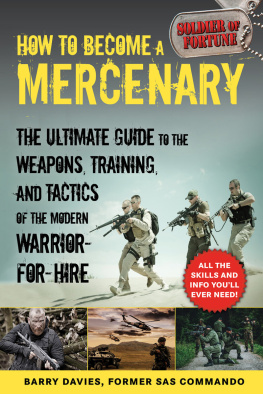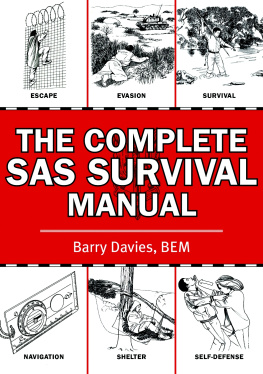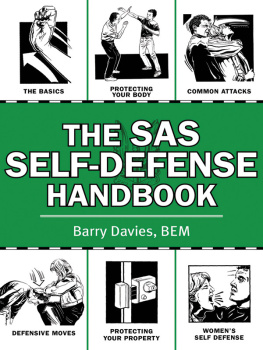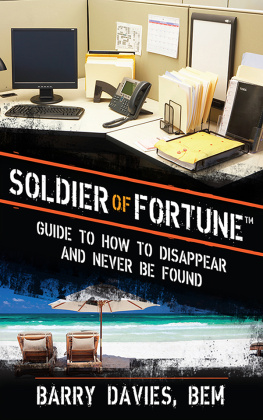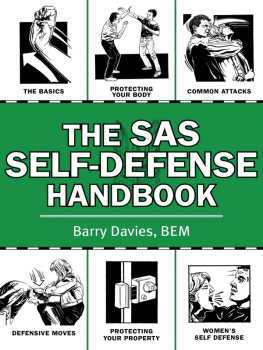


Copyright 2013 by Barry Davies. This edition of How to Become a Mercenary first published in 2020 by Skyhorse Publishing, Inc.
All Rights Reserved. No part of this book may be reproduced in any manner without the express written consent of the publisher, except in the case of brief excerpts in critical reviews or articles. All inquiries should be addressed to Skyhorse Publishing, 307 West 36th Street, 11th Floor, New York, NY 10018.
Disclaimer: This book is intended to offer general guidance relating to the mercenary occupation, one of the most dangerous occupations that exists. It is sold with the understanding that every effort was made to provide the most current and accurate information. However, errors and omissions are still possible. Any use or misuse of the information contained herein are solely the responsibility of the user, and the author, publisher, and licenser make no warrantees or claims as to the truth or validity of the information. The author, publisher, and licenser shall have neither liability nor responsibility to any person or entity with respect to any loss or damage caused, or alleged to have been caused, directly or indirectly, by the information contained in this book.
Warning: This book includes graphic images taken in war zones throughout the world. Viewer discretion is advised.
Skyhorse Publishing books may be purchased in bulk at special discounts for sales promotion, corporate gifts, fund-raising, or educational purposes. Special editions can also be created to specifications. For details, contact the Special Sales Department, Skyhorse Publishing, 307 West 36th Street, 11th Floor, New York, NY 10018 or .
Skyhorse and Skyhorse Publishing are registered trademarks of Skyhorse Publishing, Inc., a Delaware corporation.
Visit our website at www.skyhorsepublishing.com.
10 9 8 7 6 5 4 3 2 1
Library of Congress Cataloging-in-Publication Data is available on file.
ISBN: 978-1-5107-5542-0
EISBN: 978-1-5107-5543-7
Cover design by Daniel Brount and Kai Texel
Cover photographs courtesy of Getty Images
Printed in China
In memory of William Bill Cain, who died in 2012 in Hereford
CONTENTS
INTRODUCTION
I have read many accounts of mercenaries and soldiers of fortune, and while some are quite interesting, they tend to lack any true inside knowledge of what it takes to be a modern-day private contract officer. Therefore, I would like to start this book off in the right context. The word mercenary appears on the cover of this book, but to be honest, the day of the mercenariesor the soldier of fortunehas long since passed. Personally, I would like to call such men and women private contract officers, as this is more in keeping with their role in the modern world. It is true that there are still mercenaries out there, but these are mainly idiots with guns who have no idea of what is happening in the real world. The old mercenary bands have all but gone, replaced by what is now called private military contractor (PMC) or a private security company (PSC).
However, I must hastily draw a line and explain the vast difference between private military contractors and mercenaries. PMCs are subject to government regulations and prosecution to ensure their standards of conduct are acceptable and comply with international law. These standards are not readily seen by some, and the press often describes many PMCs as mercenaries merely because they are armed security services being contracted, rather than regular troops. The media, often in the heat of war, which is always foggy at best, find the distinction between PMCs and regular military officers sometimes distorted.
Finally, I will be the first to admit that there is no way this book can teach you to be a mercenary, soldier of fortune, or a private contract officer. The best I can offer is to let you know what you are getting into and the skills you will need to acquire. If you have been a professional soldier, you will understand and appreciate what I have written; if you are a civilian starting from scratch, read this book cover to cover and then go and find yourself a nice safe civilian job.
In 2013, the private military industry has become a reality. The subcontracting of military-related logistics, security, training, and support is due entirely to the decrease in military commitment and the general downsizing of regular armies. For the past twenty-five years, war in one form or another has been continuouswith both the United States and Great Britain actively participating. It is not just the larger wars, such as those in Iraq, Afghanistan, and Libya that drain manpower, but the standing commitments demanded on both nations. We have a tendency to forget about South Korea, where America has around 25,000 troops permanently based, or Northern Ireland and the Falklands, where some 300 British troops are stationed.
Then there are the smaller conflicts that no one is bothered about, like the genocide in Rwanda. It is true that the United Nations (UN) did send troops under the United Nations Assistance Mission for Rwanda (UNAMIR), but in typical UN style, the commanders on the ground were hampered by the UN committee, which as always, did not want to upset some of its member nations. I will take this opportunity to call the UN gutless, for while they have excellent forces at their disposal, they are refrained by the UN from taking serious action. This has happened in so many small conflicts that it begs the question: Why do we bother with the UN? Look what happened in Rwanda while the UN stood idly by. Secretary-General Kofi Annan expressed his deep remorse over the UNs failure to halt the massacre of 800,000 men, women, and children.
Rwanda has two main ethic groups: the Hutu (around 80% majority) and the Tutsi. In 1993, businessmen close to General Habyarimana imported over half a million machetes. These were cheaper than guns and intended for Hutus use in killing Tutsis. In general, the Tutsis are lighter colored than the Hutus and thus easier to distinguish. In addition, both Hutu and Tutsi were forced to carry ID cards.
The killing started and was fueled by a media campaign, which encouraged the Hutu gangs to seek out and kill Tutsis. Most of the victims were killed in their own villages or in townsoften by their neighbors and fellow villagers. It was not unusual for a Hutu gang to enter a village and hack every man, woman, and child to death.
On April 9, 1994, UN observers entered a Polish church in the village of Gikondo and found around 110 Tutsis, most of which were children. They had been murdered by Interahamwe militia (government-organized Hutu gangs), who were acting under the protection of the Hutu presidential bodyguard. On the same day as this barbaric incident took place, over 1,000 heavily armed and well-trained European troops arrived to escort European civilians out of the country. In my book, that number of European troops could have taken on and stopped any more killingsbut they did not.
Authors Note: It is my experience that its best to avoid doing any contract work in Africa. I have several friends working there, and while they are making good money, it is dangerousespecially when you venture outside the safe areas. The African rebels mentality is harsh: They have little fear of dying and no compunction in killing someone. In addition, they have an extraordinary supply of firepower, which usually ends up in the hands of illiterate, druginduced, young morons. They enjoyor even find it entertainingto torture, mutilate, and rape their captives (male and female). While there may be rich contracts being offered, it is not worth it ... so stay out of Africa.
Next page
